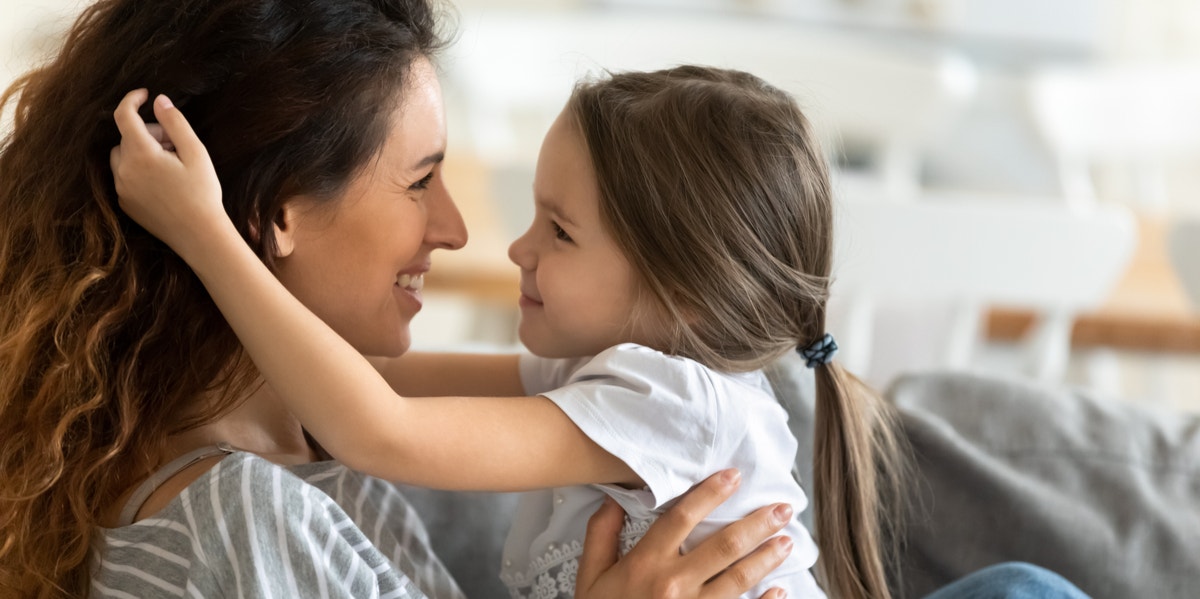Stop Telling Kids They Can’t Ask This Question
Why is this question inappropriate? Why are kids not allowed to ask it?
 fizkes / Shutterstock
fizkes / Shutterstock I was in line at Trader Joe’s, and as usual, I thought I only needed two or three things. Without a cart in tow, I was the crazy person holding — or struggling to hold — 10 different items. I was anxiously awaiting my turn to pay so I could spare my arms the agony they had surrendered to.
As I waited for the mother and young child in front of me to complete their order, I heard the boy say to the cashier, “How old are you?”
His mother quickly stopped him and said, “Honey it’s not polite to ask people that.”
She smiled at the cashier with an apologetic expression hoping the cashier didn’t feel too uncomfortable with the inquiry. She smiled back and did not answer the boy’s question.
As someone who has worked with young children for years, I have witnessed this scene multiple times, sans the excessive amount of kale in my hands.
Each time, I’m always perplexed. I’m speaking on behalf of all children when I say: Why is this question inappropriate? Why are we not allowed to ask it?
When an adult meets a child, one of the first questions after exchanging pleasantries is, “How old are you?” We ask children this question all the time! There’s great irony in this situation. We celebrate their birthdays, and we teach children that It’s the best day in the world. But, when they decide to ask an adult, “How old are you?” it’s met with corrections and uncomfortable stares.
The question, "How old are you?" is not inappropriate. Our perception of age and aging is the issue. Why teach our kids that after a certain age there is shame in disclosing how many blessed years of life we’ve lived? Why not answer that question with pride?
Our response to the question is simply a byproduct of what we have been taught to believe: Getting old is bad. We don’t need to say it explicitly to children, but our actions indicate it loud and clear. When we’re young, ages are disclosed and celebrated. But, after a certain point, concealing and hiding our age is necessary. Anytime we evade the truth we invite shame in.
To my knowledge, no one has figured out how to prevent getting older. So why the resistance? What if we allowed ourselves and our kids to gleefully ask, how old are you, regardless of the person’s presumed age? And even more shocking, what if we answered with ease! What if we responded to the child with the same joy that children exude when they say their age out loud? Why is it only celebrated when we’re young?
I turned 40 a couple of years ago. Numerous family and friends sent me extremely kindhearted, well-intentioned messages that read “happy 29th birthday” plus the winking emoji face. Sweet! I get it, but I love that I turned 40. I don’t want to be 29 again.
This fall I will turn 42, and I feel overcome with joy and gratitude that I have been granted 42 beautiful years of life. Why conceal it or avoid answering someone’s question about my age? I don’t look the way I looked when I was 29 and that’s OK.
In the same way, I have come to understand that I won’t look the way I do now when I’m 52. But, I’m also aware that If I’m blessed to get to 52, I will know more than I do today, I will have more courage than I do today and I will become even more of who I am meant to be. Comfortable in my own skin, unapologetic about my opinion, less concerned about how I may or may not be perceived, and full of myself in all the right ways.
Every time we discourage a child from asking this benign question, we deny the beauty that comes with growing and aging. The wisdom gained as we evolve and change. The truths that will unfold as our older age grants us permission to see. Every time we politely nod and resist answering we deny this inevitable part of life.
When we deem the age question unaskable, aging will remain an idea shrouded in shame. And worse, when we refuse to answer this question, we send the relentless message that aging is bad, but staying young is good. We present this false idea in the early years of life.
Every time we subtly turn away and smile rather than proudly announce the number of years we have been blessed and granted, we align ourselves with our culture’s messaging around aging.
To live is a blessing. Life is a gift. Each day is an offering to create moments that matter.
Not all are granted this gift, and one day this will be true for me, too. So, while I breathe the air and walk this earth, I will be grateful for each opportunity I’m granted to answer this question, how old are you?
Albiona Rakipi is the founder of Kiddos + Insights, a writer, a mom, and a parenting consultant in the Metro Detroit Area. Follow her at kiddosandinsights.com.

